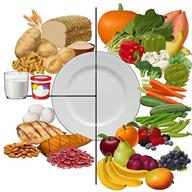Stress, Adult
Stress is a normal reaction to life events. Stress is what you feel when life demands more than you are used to, or more than you think you can handle.
Some stress can be useful, such as studying for a test or meeting a deadline at work. Stress that occurs too often or for too long can cause problems. Long-lasting stress is called chronic stress. Chronic stress can affect your emotional health and interfere with relationships and normal daily activities.
Too much stress can weaken your body's defense system (immune system) and increase your risk for physical illness. If you already have a medical problem, stress can make it worse.
What are the causes?
All sorts of life events can cause stress. An event that causes stress for one person may not be stressful for someone else. Major life events, whether positive or negative, commonly cause stress. Examples include:
Losing a job or starting a new job.
Losing a loved one.
Moving to a new town or home.
Getting married or divorced.
Having a baby.
Getting injured or sick.
Less obvious life events can also cause stress, especially if they occur day after day or in combination with each other. Examples include:
What are the signs or symptoms?
Stress can cause emotional and physical symptoms and can lead to unhealthy behaviors. These include the following:
Emotional symptoms
-
Anxiety. This is feeling worried, afraid, on edge, overwhelmed, or out of control.
-
Anger, including irritation or impatience.
-
Depression. This is feeling sad, down, helpless, or guilty.
-
Trouble focusing, remembering, or making decisions.
Physical symptoms
-
Aches and pains. These may affect your head, neck, back, stomach, or other areas of your body.
-
Tight muscles or a clenched jaw.
-
Low energy.
-
Trouble sleeping.
Unhealthy behaviors
-
Eating to feel better (overeating) or skipping meals.
-
Working too much or putting off tasks.
-
Smoking, drinking alcohol, or using drugs to feel better.
How is this diagnosed?
A stress disorder is diagnosed through an assessment by your health care provider. A stress disorder may be diagnosed based on:
Depending on your condition, your health care provider may refer you to a specialist for further evaluation.
How is this treated?

Stress management techniques are the recommended treatment for stress. Medicine is not typically recommended for treating stress.
Techniques to reduce your reaction to stressful life events include:
Identifying stress. Monitor yourself for symptoms of stress and notice what causes stress for you. These skills may help you to avoid or prepare for stressful events.
Managing time. Set your priorities, keep a calendar of events, and learn to say no. These actions can help you avoid taking on too much.
Techniques for dealing with stress include:
Rethinking the problem. Try to think realistically about stressful events rather than ignoring them or overreacting. Try to find the positives in a stressful situation rather than focusing on the negatives.
Exercise. Physical exercise can release both physical and emotional tension. The key is to find a form of exercise that you enjoy and do it regularly.
- Relaxation techniques. These relax the body and mind. Find one or more that you enjoy and use the techniques regularly. Examples include:
Meditation, deep breathing, or progressive relaxation techniques.
Yoga or tai chi.
Biofeedback, mindfulness techniques, or journaling.
Listening to music, being in nature, or taking part in other hobbies.
Practicing a healthy lifestyle. Eat a balanced diet, drink plenty of water, limit or avoid caffeine, and get plenty of sleep.
Having a strong support network. Spend time with family, friends, or other people you enjoy being around. Express your feelings and talk things over with someone you trust.
Counseling or talk therapy with a mental health provider may help if you are having trouble managing stress by yourself.
Follow these instructions at home:
Lifestyle

-
Avoid drugs.
-
Do not use any products that contain nicotine or tobacco. These products include cigarettes, chewing tobacco, and vaping devices, such as e-cigarettes. If you need help quitting, ask your health care provider.
- If you drink alcohol:
- Limit how much you have to:
Know how much alcohol is in a drink. In the U.S., one drink equals one 12 oz bottle of beer (355 mL), one 5 oz glass of wine (148 mL), or one 1½ oz glass of hard liquor (44 mL).
-
Do not use alcohol or drugs to relax.
-
Eat a balanced diet that includes fresh fruits and vegetables, whole grains, lean meats, fish, eggs, beans, and low-fat dairy. Avoid processed foods and foods high in added fat, sugar, and salt.
-
Exercise at least 30 minutes on 5 or more days each week.
-
Get 7–8 hours of sleep each night.
General instructions

-
Practice stress management techniques as told by your health care provider.
-
Drink enough fluid to keep your urine pale yellow.
-
Take over-the-counter and prescription medicines only as told by your health care provider.
-
Keep all follow-up visits. This is important.
Contact a health care provider if:
Get help right away
if you feel like you may hurt yourself or others, or have thoughts about taking your own life. Go to your nearest emergency room or:
Summary
-
Stress is a normal reaction to life events. It can cause problems if it happens too often or for too long.
-
Practicing stress management techniques is the best way to treat stress.
-
Counseling or talk therapy with a mental health provider may help if you are having trouble managing stress by yourself.
This information is not intended to replace advice given to you by your health care provider. Make sure you discuss any questions you have with your health care provider.


